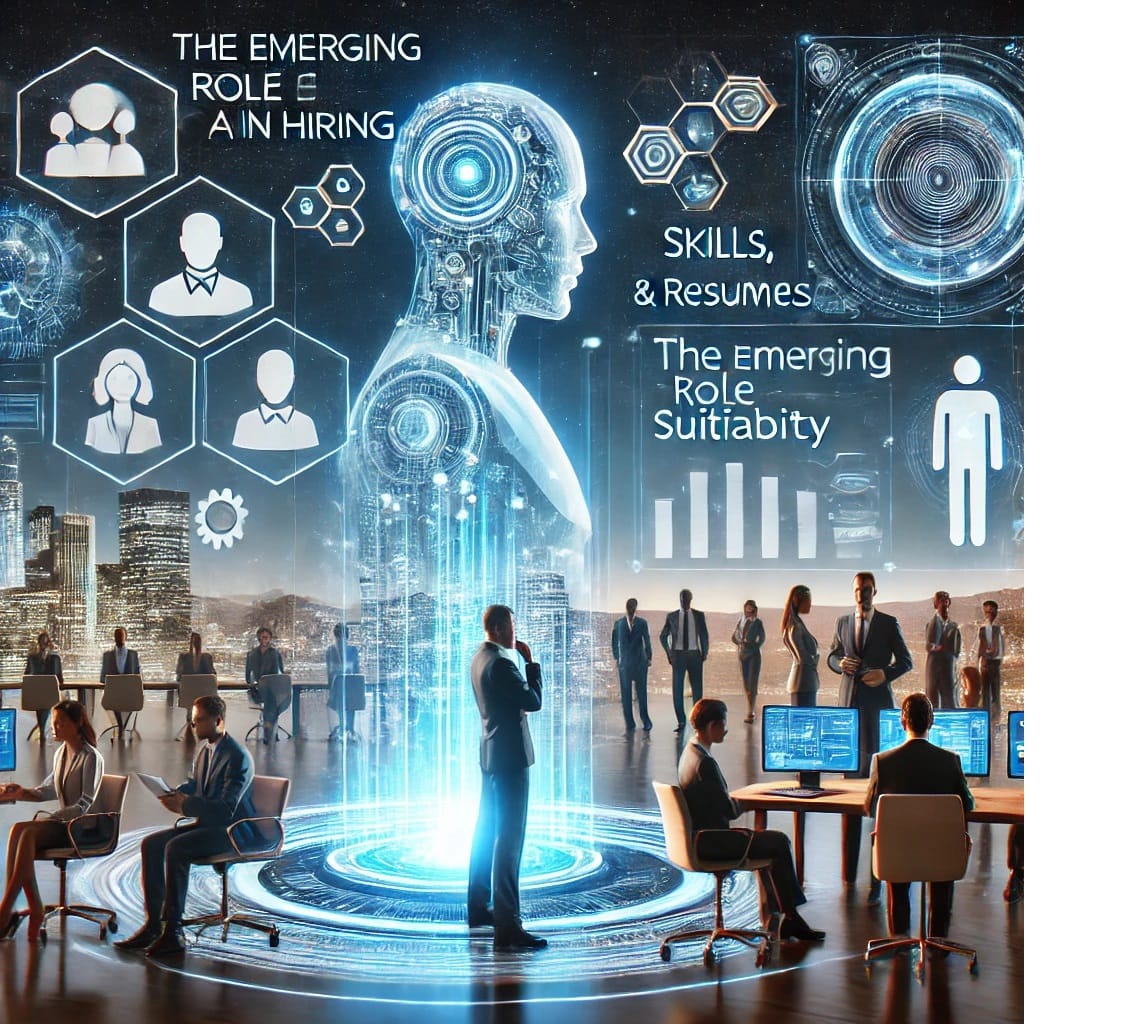
An In-Depth Exploration with Real-World Context
Executive Summary
The integration of Artificial Intelligence (AI) into hiring processes represents a transformative shift in how organizations identify, assess, and onboard talent. This upcoming 6 part series explores the opportunities and challenges of using AI in recruitment, particularly for executive and leadership roles. By addressing ethical considerations, legal implications, best practices, and actionable solutions, this series aims to guide HR professionals, recruiters, and leaders in leveraging AI responsibly and effectively.
Key Highlights
1. Ethical Considerations
- Transparency and Fairness: AI tools must be designed to ensure unbiased outcomes, fostering trust among candidates.
- Candidate Dignity: Maintaining a human-centered approach in AI applications to respect the personal and professional identity of candidates.
- Real-World Insight: Case studies highlight the importance of ethical AI in creating equitable hiring practices and avoiding unintended biases.
2. Legal Implications
- Compliance Frameworks: Navigating global legal standards such as GDPR and CCPA to ensure data privacy and security.
- Accountability Structures: Establishing protocols for AI decision-making to avoid legal liabilities.
- Real-World Examples: Demonstrating how legal oversights in AI deployment have led to challenges, emphasizing the importance of foresight and preparation.
3. Best Practices for AI in Recruitment
- Balanced Approach: Blending AI insights with human judgment for a comprehensive evaluation of candidates.
- Regular Audits: Ensuring ongoing reviews of AI systems to maintain accuracy and fairness.
- Candidate Engagement: Maintaining open communication with candidates about the role of AI in the hiring process to build trust.
4. Actionable Solutions
- Checklist for Implementation: A step-by-step guide for integrating AI ethically and legally in hiring.
- FAQs: Addressing common concerns to ensure clarity and transparency for HR teams and leadership.
- Real-World Examples: Practical applications demonstrating AI’s potential to enhance diversity, inclusivity, and efficiency in hiring.
5. The Case for Ethical AI in Leadership Hiring
- Building Trust: Transparency in AI use fosters candidate confidence and reinforces organizational integrity.
- Promoting Fairness: Leveraging AI to break traditional biases, ensuring diverse and inclusive leadership teams.
- Leading by Example: Establishing ethical standards for AI adoption in recruitment to position organizations as pioneers in responsible innovation.
Conclusion
AI in hiring is a powerful tool that can revolutionize recruitment processes when used responsibly. However, its adoption must be accompanied by a steadfast commitment to ethical, legal, and human-centered practices. By addressing these considerations, organizations can harness AI to build resilient, diverse, and effective leadership teams while maintaining trust and integrity in their recruitment efforts.
Call to Action: As AI continues to shape the future of work, HR professionals and leaders are invited to adopt these practices, setting a benchmark for excellence in ethical recruitment.
Part 1: “An In-Depth Exploration with Real-World Context”
comes on 6th, January 2025
Contact: peter@fullspectrumleadership.com
Peter Comrie of Full Spectrum Leadership
Tags: #AI, #AI Integration. #Leadership, #Future of AI, #Peter Comrie
